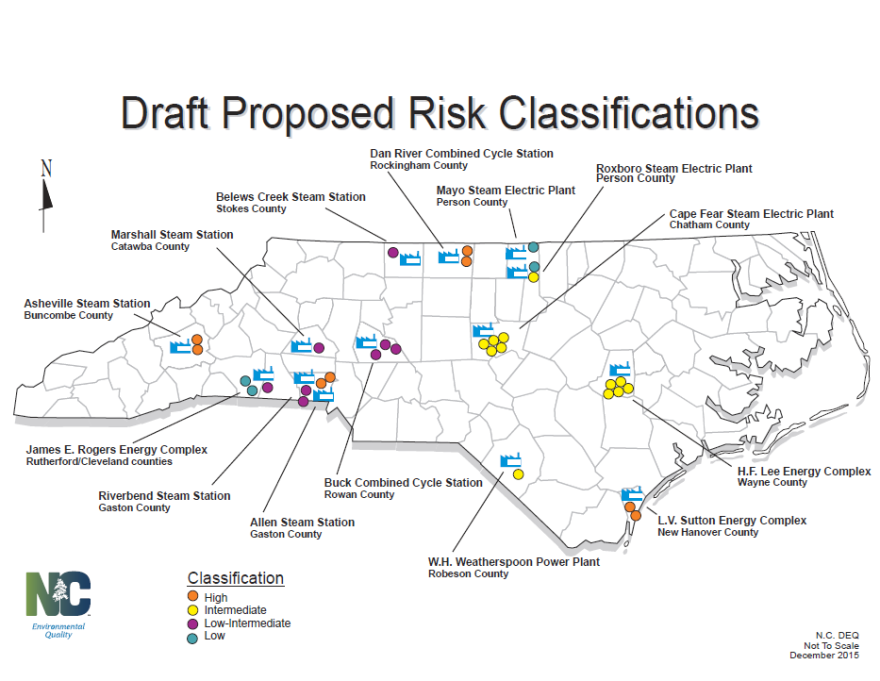Two public hearings Tuesday will help state regulators decide how and when Duke Energy must deal with coal ash at plants in Belmont and Salisbury.
The Department of Environmental Quality is holding hearings around the state this month on proposed rules and deadlines for cleaning up coal ash at Duke Energy’s 14 current and former coal plants in North Carolina.
Ash is what’s left after coal is burned. Millions of tons of the stuff have piled up for decades in storage pits and mounds at Duke’s plants. It’s a risk because it contains toxic heavy metals, which can pollute land and drinking water.
That’s what happened two years ago, when 39,000 tons of coal ash spilled from an underground pipe into the Dan River, in Eden.
In December, the state proposed classifications for all the sites - high, intermediate or low priority. Now officials want citizen feedback.
Two hearings are planned Tuesday night at 6:00 - one at Gaston College on the Allen Steam Station in Belmont and one in Salisbury, for the Buck plant.
Regulators didn’t assign exact ratings for either plant, saying only that they’re “intermediate to low” priority. A low rating would let Duke leave the ash in place. Intermediate would require removal.
RELATED LINKS
Duke Energy's coal ash management website, including locations of ash sites and Duke's plans for cleanups, http://www.duke-energy.com/ash-management/
N.C. Department of Environmental Quality coal ash page, http://deq.nc.gov/news/hot-topics/coal-ash-nc
Jan. 8, 2016, NC DEQ web page, "DEQ announces 14 public meetings on draft coal ash pond closure deadlines" - Includes dates and locations for the public hearings and link to the draft classifications.





